Cerepak® Patient Adherence Packaging
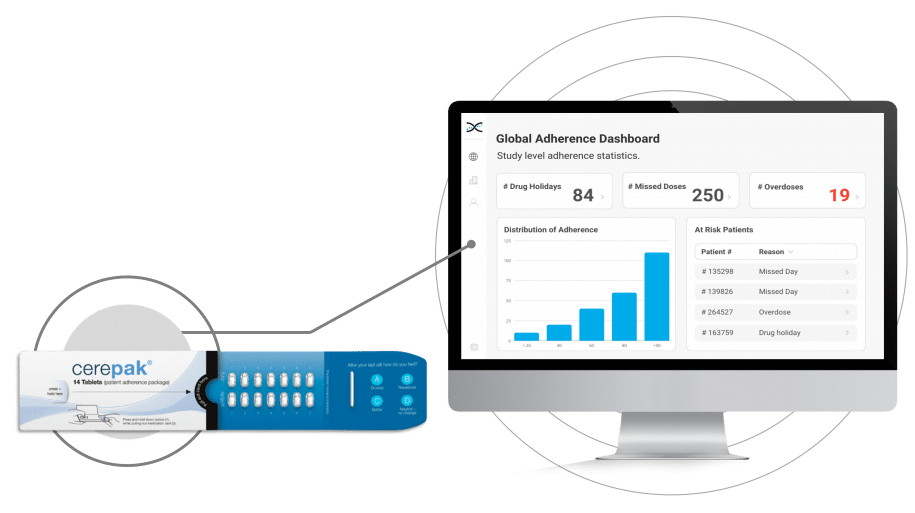
Brought to you by Westrock, Cerepak is a patient adherence packaging equipped with hidden processors that accurately capture the date, time, and location when medication is removed from the package. This innovative approach to collecting adherence events provides valuable insights for researchers, allowing them to remedy patient non-adherence quickly. With Cerepak, participants can benefit from medication reminders that keep them on track. In contrast, researchers can benefit from real-time insights into how patients cope with their medication regimens.
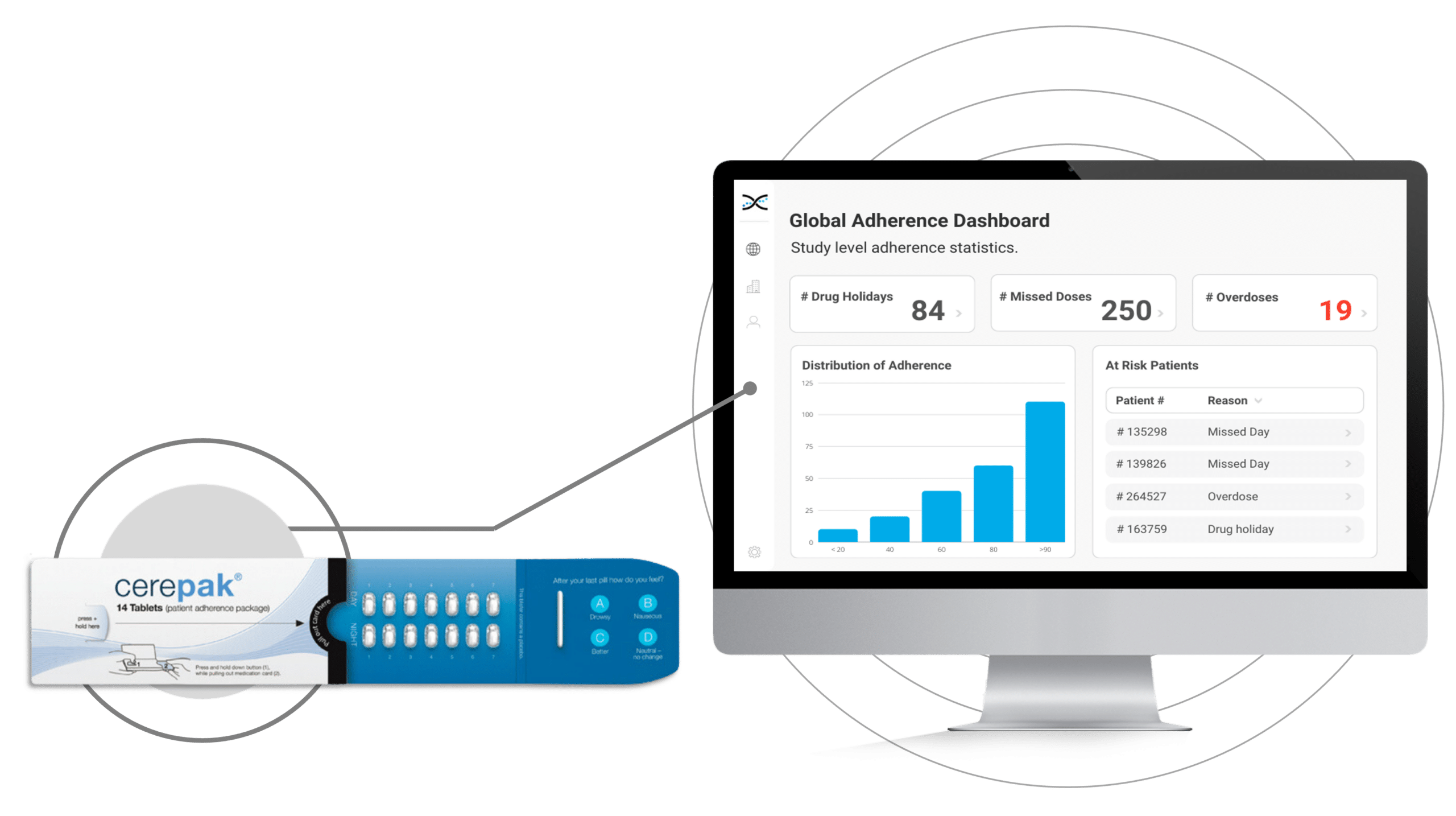

CEREPAK
Improve Patient Adherence with Cerepak
Non-adherence is a significant issue in clinical trials, with several contributing factors. Patients may find it challenging to follow complex medication regimens, and side effects can lead to non-adherence. Additionally, forgetfulness and lack of motivation can further affect adherence. Furthermore, patients may have doubts regarding the effectiveness and safety of the medication being tested, and the stigma associated with clinical trial participation can further exacerbate non-adherence. Therefore, identifying and addressing these factors is crucial to ensure the clinical trial results are accurate and reliable.
Together, AARDEX Group and Westrock are revolutionizing how sponsors measure and manage adherence.
How does Cerepak work
The proposition is simple yet sophisticated. Discreet microprocessors hidden within the cavities in the Cerepak activate when a pill is removed. The processors capture the medication event's date, time, and location before synchronizing to AARDEX Group's adherence software, MEMS AS. The payoff is two-fold: Patients are encouraged by medication reminders and alerts to remind them to take their scheduled dose, enhancing adherence. While researchers can remotely assess adherence and monitor for problematic behaviors, such as missed days, medication holidays, and overdoses.Features of Cerepak® Patient Adherence Packaging Integrated with MEMS AS

FEATURES
Identify Non-Adherence Rapidly.
Cerepak boasts seamless integration with our medication adherence software, MEMS AS. This dynamic duo offers researchers unparalleled insights into patient adherence. Leveraging sophisticated microprocessor technology, Cerepak accurately captures medication usage data, which is then processed by MEMS AS using more than 70 proprietary algorithms. These algorithms generate dashboard visualizations and reports on medication compliance at various levels - participant, study, and site. This formidable partnership redefines the benchmark for monitoring medication adherence, equipping investigators with the knowledge they need to make informed decisions.
- Fully Scalable
- ISO27001 Certified Datacenter
- HIPAA & GDPR Compliant
- IRT, EDC & DCT Integration

FEATURES
Elevate Patient Adherence.
Cerepak seamlessly integrates with AARDEX Group's Mobile App, MEMS® Mobile, providing participants with a potent tool to manage their medication regimen. The app enables users to set medication reminders, review their dosing history, and maintain adherence to their medication schedules. This minimizes the likelihood of missed doses and medication mishaps and empowers individuals to take charge of their health and well-being. At AARDEX Group, we envision patient adherence packaging as more than just a pill storage solution – we see it as an instrument that supports patients in leading their healthiest lives. By combining Cerepak with MEMS Mobile, we're turning that vision into a tangible reality.
- User-Friendly App
- IoS & Android Compatible
- Available in 28 Languages
- 20K+ Users in 30 Countries
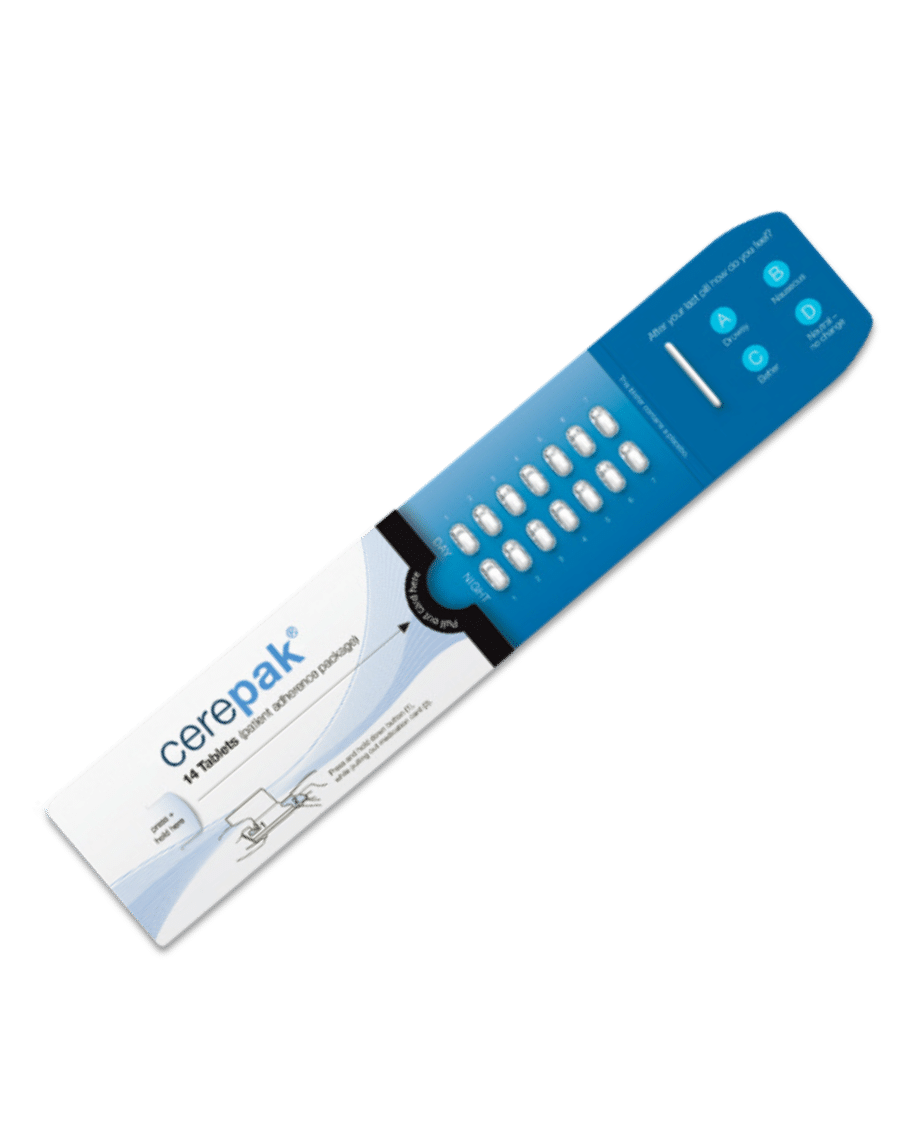
FEATURES
"Prompt" Optimal Patient Adherence.
"Prompt" technology stands as a remarkable attribute of Cerepak, utilizing both light and vibration reminders to support patients in adhering to their medication schedules, regardless of busy lifestyles or complex dosing regimens. This ingenious technology delivers discreet and non-invasive reminders, significantly reducing the likelihood of missed doses and medication errors. Designed with patient needs in mind, "Prompt" technology proves especially advantageous for individuals managing multiple medications or those navigating intricate dosing schedules. Enhancing medication adherence fosters improved patient outcomes and alleviates the stress associated with managing medications.
- Portable solution
- Child-resistant
- Available in multiple sizes & formats
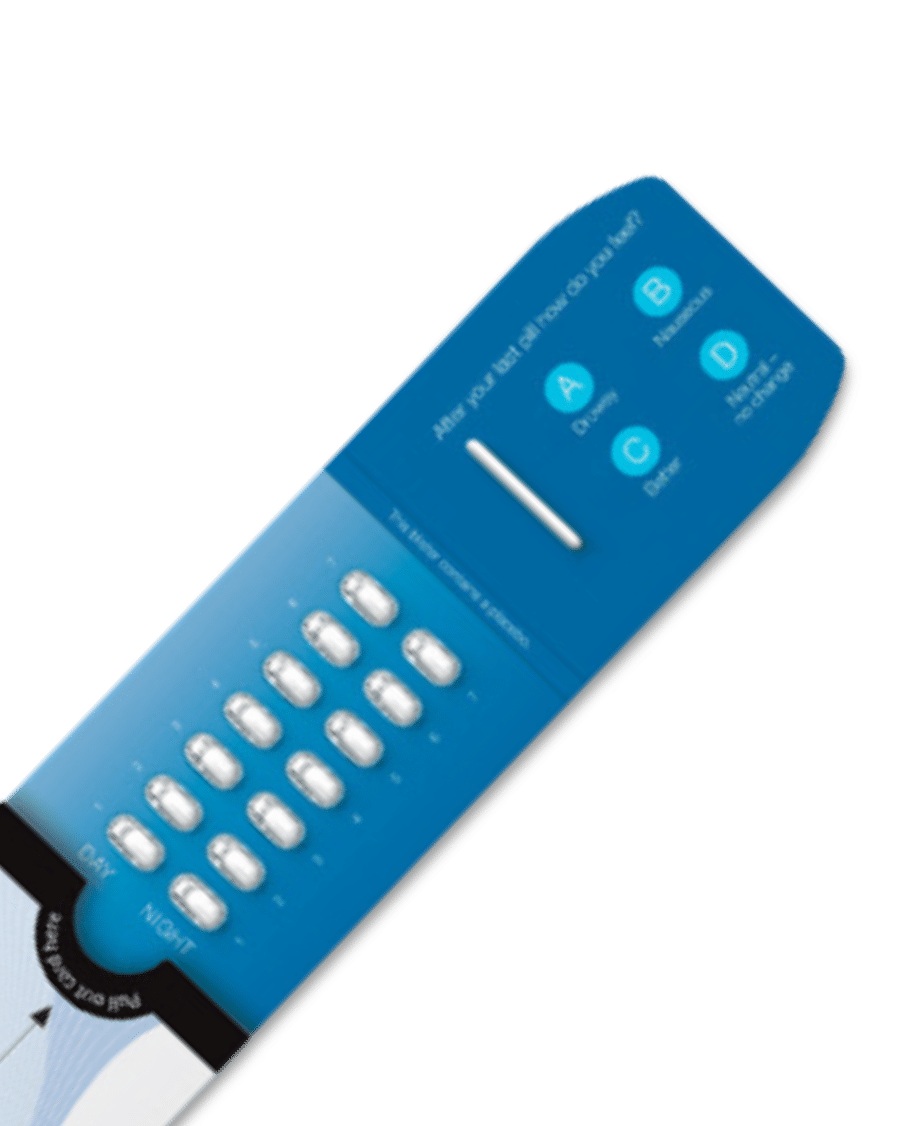
FEATURES
Quality of life Surveys.
The distinctive and advantageous one-push-button questionnaires offered by Cerepak set it apart as a unique patient adherence packaging solution. These questionnaires enable patients to log Quality of Life (QOL) feedback with each dosing event, capturing information on factors such as pain, insomnia, or thirst. This essential data assists healthcare providers in tailoring treatment plans and making informed decisions to enhance patient outcomes. Patients can contribute crucial feedback regarding their medication experiences by merely pressing a single button, paving the way for more customized and efficient treatment strategies. This feature strengthens the patient-provider relationship and empowers patients to participate actively in their healthcare journey.
- Patient-friendly
- Billboard space for patient messages & branding

OUR CLIENTS
The Go-To Solution for Pharma Companies
Some of the world's leading pharmaceutical companies have embraced our medication adherence solutions. From global giants to niche players, these organizations have recognized the value of our innovative solutions for enhancing medication adherence, reducing costs, and improving patient outcomes. It's an honor to partner with these remarkable brands, and we're proud to contribute to their efforts in advancing healthcare.

Medication Adherence Software →
Learn about our industry-leading adherence software for trials.
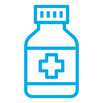
Medication Adherence Packaging →
Discover our range of medication adherence packaging.
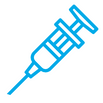
Discover our range of medication adherence devices.
Got Questions?
Connect with an adherence expert.
Frequently Asked Questions
Poor patient adherence is a vital yet often overlooked aspect of successful research. That's why we've gone the extra mile to gather and organize the most frequently asked questions about this critical topic. Our goal is to empower researchers and patients alike with the knowledge they need to ensure medication adherence is never a hurdle to progress. So, without further ado, here are the answers you've been looking for!
There are several strategies to promote adherence in clinical trials:
Monitor adherence: Monitoring adherence through patient adherence packaging, patient can help identify non-adherence early, enabling prompt intervention.
Provide clear instructions: Clear instructions on medication dosing, timing, and administration can improve patient adherence. Instructions should be easy to understand and follow.
Simplify medication regimens: Simplifying medication regimens can reduce the complexity and make it easier for patients to adhere to the prescribed regimen.
Educate patients: Educating patients on the importance of adherence and the potential consequences of non-adherence can improve adherence.
Address barriers: Identifying and addressing barriers to adherence, such as side effects, forgetfulness, or lack of motivation, can help improve adherence.
Provide reminders: Providing reminders through phone calls, text messages, or other means can help patients remember to take their medication.
Support patients: Providing support through counseling, peer support groups, or other methods can help patients feel motivated and encouraged to adhere to their medication regimen.
Overall, a multifaceted approach that includes clear instructions, education, monitoring, addressing barriers, and providing support can help promote optimal patient adherence in clinical trials.
Adherence packaging can help with adherence in several ways. First, it simplifies the medication-taking process, making it easier for patients to take their medication on time and in the correct dosage. Adherence packaging can also provide visual and auditory reminders, such as flashing lights or alarms, to prompt patients to take their medication.
Furthermore, some adherence packaging incorporates advanced technology, such as smart sensors and microprocessors coupled with connectivity with medication adherence software, allowing clinical researchers to monitor medication adherence in real-time. This allows for early identification and intervention when non-adherence is detected.
Overall, adherence packaging can help patients adhere to their medication regimen and improve medication adherence rates, ultimately leading to better health outcomes and more accurate clinical trial results. However, collecting the data is only the one piece of the puzzle – utilizing an adherence software completes the puzzle by interrogating the data to provide objective analysis.
Blister packaging: This type of packaging involves individual doses of medication being packaged in small plastic or foil compartments. The packaging is usually labeled with the date and time the medication should be taken, making it easy for patients to keep track of their medication schedule. However, not all blister packs are created equal. Cerepak is digitally enabled and automatically tracks medication intake without any intervention from patients.
Smart pill bottles: These are pill bottles that are equipped with technology that can track when the bottle is opened and closed, and can send reminders to patients to take their medication. Some smart pill bottles can also be programmed to dispense the correct dose of medication at the right time. For more info, check out AARDEX Group’s MEMS Cap, a handy track cap that makes any type of pill bottle digital.
Yes, Cerepak includes billboard space for branding/graphics, health education, and dosing instructions. This feature allows healthcare providers to customize the packaging with their own logos, graphics, and messaging, enhancing the patient experience and building brand awareness. In addition to branding and graphics, Cerepak can also house health education and dosing instructions to ensure that patients have all the information they need to take their medication properly . This feature is particularly important for patients with complex medication regimens or those who are taking new medications for the first time. Overall, Cerepak’s customizable design and comprehensive information make it a powerful tool for improving medication adherence and enhancing patient outcomes.
Cerepak is a versatile medication compliance packaging solution that can be customized to meet the needs of a wide range of patients and medication regimens. One important feature of Cerepak is its ability to provide child-resistance as necessary. Child-resistant packaging is especially important for households with young children, as accidental ingestion of medication can be dangerous or even life-threatening. With Cerepak, healthcare providers can have peace of mind knowing that they are providing a patient adherence packaging solution that is both effective and safe for patients of all ages.
Patient adherence is crucial in clinical trials for several reasons:
Accurate results: Maintaining a high level of adherence ensures that trial results accurately reflect the efficacy and safety of the investigational treatment. Non-adherence can lead to unreliable data, making it difficult to determine the true effects of the treatment under investigation.
Statistical power: Adherence is necessary to maintain the statistical power of the study. When patients do not follow the prescribed regimen, the sample size may not be sufficient to detect a significant treatment effect, potentially leading to inconclusive results.
Ethical considerations: Clinical trials often involve significant investments of time, resources, and finances. Ensuring patient adherence helps maximize the value of these investments and minimizes the risk of exposing participants to unnecessary harm or inconvenience.
Regulatory approval: Regulatory agencies, such as the FDA, require robust evidence of a treatment’s efficacy and safety before granting approval. Poor adherence can compromise the quality of this evidence, leading to delays or even denial of approval.
Cost-effectiveness: Non-adherence can prolong the duration of a clinical trial, as additional data may be needed to compensate for the loss of statistical power. This can result in increased costs and delays in bringing the investigational treatment to market.
Patient outcomes: Patient adherence is essential for optimizing the benefits and minimizing the risks of treatment for individual participants. Non-adherence can lead to suboptimal outcomes, including treatment failure or adverse events.
In summary, patient adherence plays a pivotal role in clinical trials by ensuring accurate results, maintaining statistical power, upholding ethical standards, facilitating regulatory approval, optimizing cost-effectiveness, and improving patient outcomes.
WEBINAR WITH MERCK & BIOGEN
Mitigating the Risk of Poor Adherence in Trials
Watch this live recording with adherence experts from Merck & Biogen to learn about their approach to mitigating the risk of poor adherence in trials.
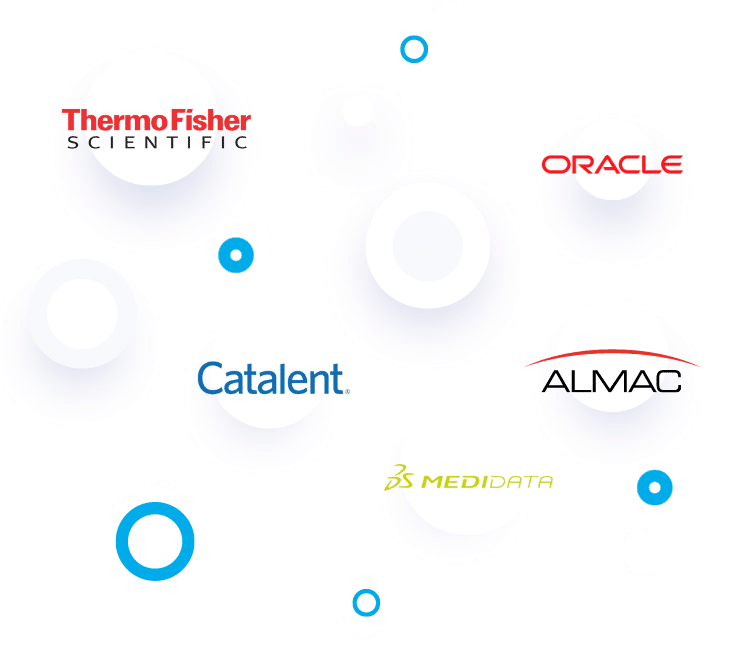

Collaborating for Safer, More Efficient Trials.
By combining technology and partnerships, we are revolutionizing how medication adherence is monitored in clinical trials. Our unique adherence ecosystem brings together leading medication adherence packaging and devices and DCT, IRT, and EDC vendors, CROs, and CMOs to drive innovation.
